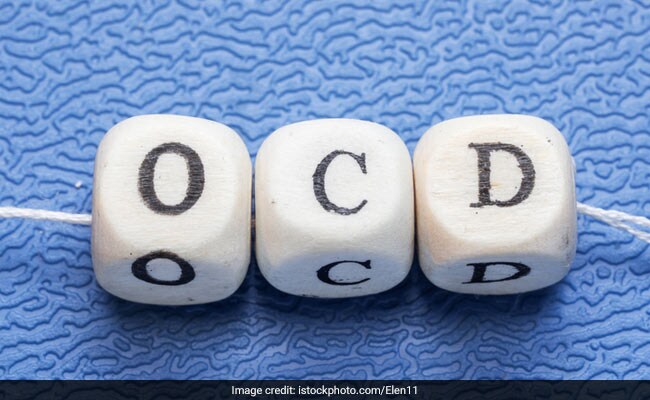Obsessive-Compulsive Disorder (OCD) results in obsession with a thought, action or feeling and the person falls prey to a cycle of compulsive behaviour. Read on to know types of this mental health condition and ways to fight this.

Obsessive-Compulsive Disorder Can affect your day to day activities
HIGHLIGHTS
- The exact cause of OCD is unknown
- People affected with OCD are prone to repetitive behaviors
- It can also lead to anxiety
Obsessive-Compulsive Disorder (OCD) is a mental health disorder that can result in unwanted thoughts, fears and actions. A person with OCD may feel a strong urge to do something over and over again. These repetitive behaviours are compulsions. OCD can affect your life. It can also cause anxiety if you try to ignore or stop the obsession. In the end, you feel uneasy until you finish that task. Some common examples of OCD are- washing hands again and again, cleaning many times a day, arranging stuff always in the same pattern, checking doors or stoves repeatedly and other such activities.
Obsessive-Compulsive Disorder (OCD): Types and how to manage
Mental health therapist/Counsellor Arouba Kabir explains, "The only way to conquer something, is to understand it fully, form a plan and go for it. This is true not just for battling chronic diseases but for almost everyday life situations. OCD or Obsessive Compulsive Disorder is a disorder in which a person becomes obsessed with a thought, action or feeling and falls prey to a cycle of compulsive behaviour. In a recent survey conducted in an Indian setting, it was observed that up to 1% of the population is affected by OCD."
Therapist Arouba further explains that it has become increasingly important to understand the various prevalent forms of this condition and it can manifest as:
1. Cleaning obsession where one starts fearing the risk of getting infected by absolutely any and everything and thus falls into a cycle of repeated cleanliness drives.

Cleaning obsession can make you clean even when not required
Photo Credit: iStock
2. Hoarding obsession where one starts hoarding unnecessary things with a backdrop fear of what if I need it later and it isn't available, what if a tsunami strikes I should be prepared etc.
3. Symmetry obsession where one starts organizing and re-organizing things into a symmetric pattern. Anything falling out of symmetry can induce a panic attack.

People with OCD may feel stressed if things are not arranged well
Photo Credit: iStock
4. Harm obsession involves a mental state where the person is continuously fearful of getting harmed-possibility of getting into a car crash prevents them from driving, the possibility of drowning keeps them away from water etc.
5. Social Pressure obsession involves a mental state where the person is constantly fearful of facing social embarrassment, making a mistake, being disrespected and thus is reluctant to interact due to the fear of being judged.
Also read: Obsessive Compulsive Disorder (OCD): Causes, Symptoms And Treatments
All these troubling thoughts induce cycles of anxiety, depression and fear. One must get diagnosed clinically if they feel they can relate to anything cited above. Simple daily practices like including breath work, meditation to calm your mind, involving in physical activities and reaching out and seeking help have all been advocated. Often a professional counsellor deems helpful in helping you break the cycle of negative thoughts and actions and helping you understand the condition and finally conquering your fears.
(Arouba Kabir is a Mental health therapist or Counsellor at Ensowellness)
Disclaimer: This content including advice provides generic information only. It is in no way a substitute for qualified medical opinion. Always consult a specialist or your own doctor for more information. NDTV does not claim responsibility for this information.
DoctorNDTV is the one stop site for all your health needs providing the most credible health information, health news and tips with expert advice on healthy living, diet plans, informative videos etc. You can get the most relevant and accurate info you need about health problems like diabetes, cancer, pregnancy, HIV and AIDS, weight loss and many other lifestyle diseases. We have a panel of over 350 experts who help us develop content by giving their valuable inputs and bringing to us the latest in the world of healthcare.














